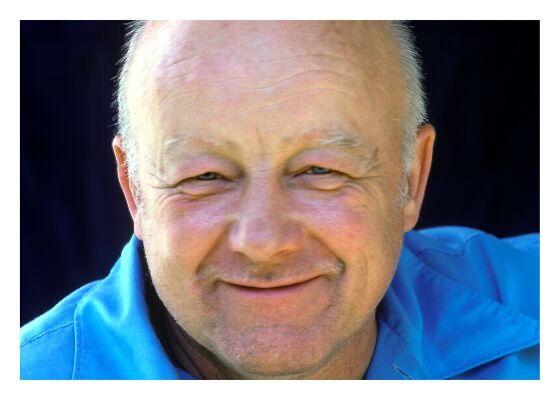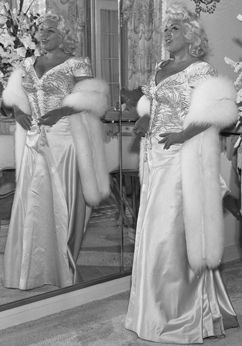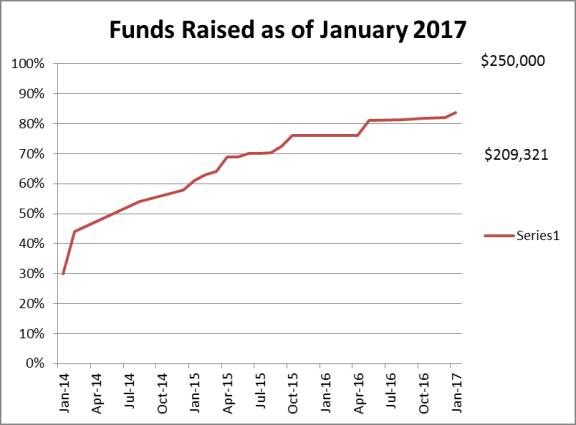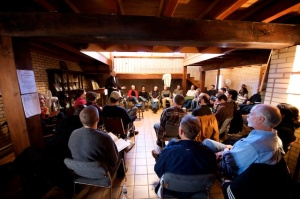TAT Forum
February 2017

Convictions & Concerns
TAT members share their personal convictions and/or concerns
Celibacy Q&A
I'm fascinated by the Cleveland talks…in the Forum newsletter, and I used to live there and feel so sad I never met [Richard Rose] back then.
The only problem is I just can't wrap my brain around his suggestion to be celibate. Doesn't make sense to me, as it doesn't for Catholic priests either.
There is a small book available from the TAT Press called The Celibate Seeker which explains some of the rationale behind celibacy. In addition, Richard Rose wrote a book titled Energy Transmutation, Transmission and Between-ness, in which it is also discussed.
My personal experience and view of celibacy arises from the practice of it as a seeker. Celibacy serves to quell the mind's pre-occupation with sex. I have found it correspondingly raises one's mental energy and leads to greater mental clarity and sensitivity. The effort to search for self-definition can be a bit of an experiment. Energy and attention are needed, and I have found that celibacy helps to clear the mind of a needless obstacle to examination of the mind. If you go to run an experiment, you eliminate as many of the variables as possible. And this effort at self-definition is no different.
I don't intend to be glib, but if your aim is self-definition, let nothing stand in the way. And provide for yourself the maximum chance for success by preserving your energy for the task ahead—and celibacy helps preserve the greatest engine of energy in the body. The goal is then to direct that energy to a higher purpose—self-inquiry. And I have found that results are proportional to energy applied. No one drifts into spiritual excess.
There are a number of books out there that speak to conservation of energy as a path to achievement. For example, there is a chapter on it in the book Think and Grow Rich. In the past, athletes in training (say for a prizefight) would absent themselves from their wives, to build their energy and focus. In addition, some actors and actresses stay away from sex while working large movie or theatrical productions to have the mental focus for their parts. Reflecting this, Mae West was one such person, and made the statement, "sex divides the mind." [See more of the Mae West statement in the Inspiration & Irritation section below - Ed.]
Rose did not advise a lifelong commitment to celibacy—only for as long as one is pursuing a higher value. He criticized the Catholic Church for making it a lifelong commitment rather than freeing priests from the vow of celibacy in their later thirties or forties to live as a family man if they wished to have a family, after they had run the experiment in an effort to find God.
Rose noted that there was a "thaumaturgical law" regarding abstinence, that after 21 days of celibacy thoughts of sex die down and temptations abate. [Another of Rose's early students remembers 21 days as the number most frequently mentioned by Rose for protection when thaumaturgists were invoking entities, but he thinks Rose may also have cited a reference to 28 days. The number I recall Rose citing for protection was 28. He also recommended celibacy for 1 month as a test for its efficacy: reading a difficult scientific or philosophical book before the start and then again at the end of the month, to see if it produced more clarity. - Ed.] Greater clarity and sensitivity become apparent. I have found this to be true, as well. Rose was fond of speaking to the statement "the finite mind can never know the infinite" by adding, "but the finite mind can become less finite."
I have found that the sex habit is one of the body's most difficult habit patterns to control, and that as Rose advised, celibacy is best viewed as taking a holiday from sex. So, you might consider ignoring mental rationalization, and giving it a try.
For those who are married, Rose spoke about relative celibacy, reducing the frequency of sex, and then eventually going to longer intervals to achieve clarity. I have known seekers who successfully worked towards monthly intervals with their wives (often at risk to their marriages if the wife was not cooperative) or other longer periods of "holiday."
I hope that this is of some help. It is not my purpose to try to convince you of any path of action, but to respond to the question as honestly as possible.
*
~ Written by a TAT member who wishes to remain anonymous, in response to an inquiry he received. In 2007, we issued a call for papers on the question "Does sex have a role to play in the spiritual search?" and then published responses and choice quotes in the July 2007 TAT Forum.

TAT Foundation News
It's all about "ladder work" – helping and being helped
|
* March 31-April 2, 2017 (Claymont Mansion) *
|
 Downloadable/rental versions of the Mister Rose video and of April TAT talks Remembering Your True Desire (details).
Downloadable/rental versions of the Mister Rose video and of April TAT talks Remembering Your True Desire (details).


Local Group News
 Update from the Central Ohio Nonduality group:
Update from the Central Ohio Nonduality group:
We continue to meet on Monday evenings at Panera across from The Ohio State University.
~ For further information, contact
or
.
We're also on Facebook.
 Update from the weekly email self-inquiry groups:
Update from the weekly email self-inquiry groups:
Both the women's and the men's email groups are active, and we welcome serious participants.
~ Contact
or
.
 Update from the Gainesville, FL self-inquiry group:
Update from the Gainesville, FL self-inquiry group:
We continue to meet at the main Alachua County library on alternate Mondays and Sundays. We're still looking into the possibility of a February weekend retreat at Horseshoe Lake Park in rural Ft. McCoy, FL.
~ Email
or
for more information.
 Update from the Galway, Ireland self-inquiry group:
Update from the Galway, Ireland self-inquiry group:
In addition to meetings in Galway city, satellite groups are now meeting in Cork and in Dublin. Tess Hughes, along with guest Art Ticknor, will be leading a retreat in Tallaght, Co. Dublin, on May 26-29. And in October (27th-29th), Tess and Bob Fergeson will be leading Awakening Together's fall retreat in Colorado Springs, CO. ~ See the Events page on Tess's website for details.
 Update from the Greensburg, PA self-inquiry group:
Update from the Greensburg, PA self-inquiry group:
We continue to meet every other week at our usual location with our several regulars.
~ Contact
.
 Update from the Lynchburg, VA self-inquiry group:
Update from the Lynchburg, VA self-inquiry group:
We continue to meet on Wednesday evenings and welcome inquiries.
E-mail
or
for information on the meetings.
 Update from the New York City area:
Update from the New York City area:
We've recently started a group in NYC and are looking for consistent, serious but lighthearted ;) members. So far, we have started each group meeting with a short meditation followed by a self-inquiry session with questions and responses. We plan to vary the format and also go on local retreats and spiritually-minded events, as time allows. We are meeting in downtown Manhattan (the financial district) in a really great public space that we are fortunate to have. Please contact me with any interest or questions. Tell a friend :)
~ Email
.
 Update from the Pittsburgh, PA self-inquiry group:
Update from the Pittsburgh, PA self-inquiry group:
We hold public meetings on the 1st and 3rd Wednesdays of each month at the Pittsburgh Friends Meeting House in Oakland.
We also have private (i.e., by invitation only) confrontation meetings on the 2nd and 4th Thursdays.
~ For further information, contact
or
.
 Update from the Portland, OR self-inquiry group:
Update from the Portland, OR self-inquiry group:
After a break for the holidays, we're back to meeting most Sundays. We've been meeting at different local libraries around town due to limited room availability at any one library, but this has made it easier for people in those neighborhoods to attend the meetings.
~ Email
or
for more information.
 Update from the Raleigh, NC Triangle Inquiry Group:
Update from the Raleigh, NC Triangle Inquiry Group:
The Triangle Inquiry Group (TIG) meets on Wednesday evenings near NCSU.
~ Email
or
for information on local meetings.
 Update from the San Francisco Bay area self-inquiry group:
Update from the San Francisco Bay area self-inquiry group:
The Hollow Reed group is planning a weekend retreat in Middletown, CA on March 3-5 with special guests Paul Hedderman and Michael Taft.
~ Email
for details.
 Update from the Tallahassee, FL self-inquiry group:
Update from the Tallahassee, FL self-inquiry group:
We continue to meet every other Tuesday at the downtown public library.
~ Contact
,
or find the group on Meetup.com.
Members-Only Area
A password-protected section of the website is available for TAT members. The area contains information on product discounts for members as well as a substantial amount of helpful and historical information, including audio recordings, Newsletter archives, Retrospect archives, policies, conference proceedings, business meeting notes, photographs, and suggestions for ways to help.
 The following audio recordings from 2016 TAT meetings are now available in the members-only website area:
The following audio recordings from 2016 TAT meetings are now available in the members-only website area:
Please us if you have questions. (Look into TAT membership.)
Amazon and eBay
|
As an Amazon Associate TAT earns from qualifying purchases made through links on our website. Beyond Mind, Beyond Death is the latest of TAT's books to be converted to the Kindle ebook format. All of the TAT Press books are now available on Amazon in a digital format.
There's more background information in the TAT Homing Ground section below. |
Your Contributions to TAT News
TAT founder Richard Rose believed that working with others accelerates our retreat from untruth. He also felt that such efforts were most effective when applied with discernment, meaning working with others on the rungs of the ladder closest to our own. The TAT News section is for TAT members to communicate about work they've been doing with or for other members and friends. Please your "ladder work" news.

Humor
"One thing you must be able to do in the midst
of any experience is laugh. And experience
should show you that it isn't real, that it's a
movie. Life doesn't take you seriously, so why
take it seriously." ~ Richard Rose, Carillon

Thanks to Mike L.
|
* In his recent book, Ha! The Science of When We Laugh and Why, Weems reviews a raft of academic studies, including those that have used scanning to show which parts of the brain respond when we encounter something funny. In the book, he posits a theory: essentially, that humour is a form of psychological processing, a coping mechanism that helps people to deal with complex and contradictory messages, a "response to the conflict and confusion in our brain." * "Satire is to afflict the comfortable and comfort the afflicted." ~ Social justice activist and comedian Josie Long * The Humor Research Lab at the University of Colorado Boulder is affectionately known as HuRL. * "Humour may be the way of finally getting at what is special about the human condition." ~ Scott Weems
~ Excerpts from "A Serious Business: What Can Comedy Do?"
By Mary O'Hara,
Brain in the News, Vol. 23 No. 8, October 2016, The Dana Foundation newsletter
|
 We're hoping to present more humor created by TAT members and friends here. Please
your written or graphic creations. Exact sources are necessary for other submissions, since we need to make sure they're either in the public domain or that we have permission to use them.
We're hoping to present more humor created by TAT members and friends here. Please
your written or graphic creations. Exact sources are necessary for other submissions, since we need to make sure they're either in the public domain or that we have permission to use them.

Inspiration & Irritation
Irritation moves us; inspiration provides a direction
|
"The Mindful Trackers"
See Bob's Mystic Missal blog post 1527 for more material on Paul Rezendes including a link to his full nine-part series.
|

|

"Chop suey, sex, and my career. My work was the most fun. Sex was second best. I didn't want it when I was working. Well, maybe that's going too far. I wanted it, but I refrained because I wanted to conserve my sexual energy to put into my work. You've gotta conserve your sex energy in order to do your work. You know, honey, you want to be sure to do that, too. It's the same energy. "When I started to write or did a picture, I stopped all my sex activities. Sex divides your mind. The sex drive is behind everything creative we do. The stronger the sex drive, the stronger the desire to create. When an architect designs a building, he puts his sex drive into creating that building."
~ From an interview with Mae West in Ravenswood Apts, Hollywood, in 1979;
She Always Knew How: Mae West, A Personal Biography,
By Charlotte Chandler
|

|
When you meditate, what
What is happening, I have wondered. I find it sad that after such commitment and desire for peace that so little is seemingly being achieved by the individuals. I think the problem that arises is lack of understanding of the ultimate problem or over reliance on some meditation technique as a symptom reliever to the extent of not feeling the need to go after the fundamental problem. In other words, the meditation technique becomes a crutch or a salve which removes the drive to face into the self-surgery that is necessary, or relegates the primary problem to a secondary position. Many people say to me "I have a practice," but when I ask them what they are practicing for they look baffled. When someone feels that they are doing what the doctor ordered, and most guru doctors do order meditation, we tend to accept that doctor knows best and simply follow orders. We believe some authority—the human mind is a belief machine—because it saves having to think and look for ourselves. The problem for many "good" meditators, I think, is that the practice facilitates sleep rather than awakening, because it offers an immediate and effective relief of the symptoms of discontent, such as reactions, rather than going after the root cause of reactions. It is counterintuitive to go into our discontent as the way of alleviating it. We have learned that avoidance and distraction offer immediate relief—temporarily. Taking on the job of unearthing the root cause of each discontent as it arises is hard work. These various discontents arise throughout our daily life, in response to circumstances and often at the most inconvenient time. My idea of an effective meditation practice relies on becoming able to notice these discontents as they arise and even if you can't do anything about them at the time, to examine what caused your response at a later time. In becoming able to notice and keep track of your responses, you are gathering evidence for how your "selfing" works. I am using the word "selfing" here to refer to the automatic programme running in us for self-generation and self-preservation. We automatically feed our sense of self, ego, at every moment, but this sense of a personal, individual self is the problem. One of the best analogies I have seen of the human condition is as the guest who takes over the role of the host. (Rumi) The guest, self, ego, thinks it is running the show of your life when this is not the case. An effective meditation session depends on gathering evidence of the guest, self, in action, then testing its veracity in light of universal spiritual truths, such as you are not the doer, and so on. A "good" meditation session then would be one in which you could see for yourself how you automatically buy into or fall into the delusion that you, as guest, are running the show. |

Please
your thoughts on the above items.

Reader Commentary
Encouraging interactive readership among TAT members and friends
|
A reader wrote that what would make the Forum more interesting would be: Hearing from people who are searching – and have questions instead of those providing endless advice and "answers." What challenges they are facing. What their doubts and questions are. How they perceive their path is going. What they are doing in their lives. Where they think they will end up. Etc. etc. Can you help make the Forum more interesting? |
 Last month the Forum staff asked the question: When you meditate, what constitutes a "good" session?
submitted by Bill K. [We're always happy to get your questions for other readers!]
Responses follow:
Last month the Forum staff asked the question: When you meditate, what constitutes a "good" session?
submitted by Bill K. [We're always happy to get your questions for other readers!]
Responses follow:
 From Debi P:
From Debi P:
What makes a good meditation session for me is noticing what is present, allowing/fully accepting all of it to be there, and resting in that place of equanimity. What would make it a great meditation session would be to go even beyond that, I guess what is meant by total absorption of the "mind" into the Self/Heart.
 From Nick G:
From Nick G:
1. Every session is a good session. (I'll be more practical after this.)
2. No interruptions, ie. phone calls, siblings, spouses, fire alarms, etc.
3. A triumph over interruptions should they happen. Deal with them, or become frustrated, but return to the task at hand. Or use them as an item to observe as something that's "not self." Sometimes I've been so set back by these that I just quit the session.
3. No time limit, not worried about time, not wondering how long I've been at it.
4. A submersion into quietness that, upon finishing, I'm able to leave my attention on. Oftentimes I find myself doing chores quietly, as if still meditating. Washing dishes seems to be my go-to chore—and there's no complaints about it. If spoken to, I don't encourage the conversation, but inevitably if the exchange goes on for too long, my attention will shift away from the quietness and back to social habit.
5. Alternatively, it's a time to consider strife, pleasure, or other memory-marking events in my life. Consider what's really at the root of why they affected me. If I'm able to dig below the trigger and get at why I felt a certain way, then I feel as if progress was made. Then it seems like I'm able to link that discovery to other similar but different events. Sometimes I visit an event but nothing really comes—at least I've watched it and maybe a later visit will be more insightful. Maybe nothing is meant to come. Beggars can't be choosers. But in my waking life, if the memory and the bother of the event returns to trigger a feeling, then maybe something has been left unturned.
6. To find some sort of answer for a question I started the session with. This is tricky because it seems to require patience and honesty—how can you know if your answer is true or you've just settled for something that appeals to you? Sometimes my intuition will rest on something. If it's a wrong answer, at least a decision was made that can hopefully be challenged in the future.
7. There is no good meditation session if I haven't awakened by the end of it, Ha, Ha. (I'm mostly joking here.)
 From Chuck W:
From Chuck W:
What constitutes a good meditation session for me is spaciousness, an awareness of infinite inner space.
 From Sheri R:
From Sheri R:
For me, a good meditation session is intrinsically linked to thorough preparation. When properly prepared, the factors that constitute a 'bad' meditation session are dramatically reduced. A 'good' meditation, then, becomes easier to define by understanding what sets a session in an ineffective direction. An ineffective meditation session is where I find myself in one of two extremes: falling asleep or perceived more interesting mind activity (planning, reminiscing, problem solving, imagining, etc.).
A 'good' session therefore is a session where the motivation for the practice as a whole is remembered, the goals for the individual practice are met and there is an overarching sense of alertness, or vitality, to the practice.
Most striking, and perhaps most relevant, a good meditation session will make itself known once I am out of the meditation seat and engaging my ordinary day-to-day activities. A sense of life being 'heightened' in all its emotions, and ordinariness, is met with readiness, steadiness and calmness. That's a nice place to be.
 From Joyce S:
From Joyce S:
Absence of angst or expectation, a general feeling of OK'ness—with any luck, a few breaks from thought.
 From Penny W:
From Penny W:
I don't really think in terms of "good/bad" meditation sessions. I think I read somewhere that the only "bad" session is when you fail to sit (implying that if you sit it is a "good" session) and I hold that belief—no matter what's happening during a session, I believe that there is "something" transmuting deeply within in me and I trust in the process.
The I that is willing to meditate sets an intention at the beginning to stay alert and non-identified. If I judged myself on fulfilling that intention I would rarely if ever have a "good" session. I do believe that the faculty that is "realizing/seeing" that I have been identified with a thought and/or the waking up from drowsiness and returning to the observing I is exactly the facility that I am hoping to make stronger in me. I have also set an aim at not falling asleep, something I have been experiencing regularly, so I have gone back to the basics until I find freedom from this distraction.
 From Beau B:
From Beau B:
On one level, I've never had a "good" meditation session. I still haven't recognized who I really am. Until then….
It's a great question though. I've read Tess Hughes' This Above All recently, so lately I've felt "successfulish" when a meditation session has led to a day where I really felt more deeply that I was living "Not My Will But Thine" and seeing EVERYONE as a Child of God. Retreating into moments of deep silence seems to naturally expand these energies back into life.
There's also the level of inwardness or awareness of awareness that can seemingly fluctuate; a "good" meditation session may be one that deepens that inward flow back out into lived life as well.
I think I learned fairly early on in this game, this Quest, that it wasn't necessarily helpful to neuroticize over particular meditation experiences and create more attachments, etc., though I'm sure it took some trial and error to see that. I remember there was a period of time where I would always see this dark blue light when I reached a certain level of deepness and silence, and that was exciting at first, and created a sort of goal mindset that didn't feel right. I would think, "Oh, that wasn't a good session, I didn't see the light," or the opposite.
Now, any time my whole heart and soul is engaged in silence and surrender is a session well-sat, and that seems to go with a concomitant deepening of heart and soul and silence and surrender in life. But there still seems enough me here to keep from finding what I'm looking for, and until then, nothing's quite good enough.
 From Richard G:
From Richard G:
My view on meditation is basic and simplistic. Methods to quiet the "mind" seem to be geared toward relaxation. This type of "meditation" is very helpful to reduce anxiety, move toward sleep and/or calm when there is a general distress or upset. I equate this type of meditation as a generator of positive feelings, thoughts, and sensations. In other words, a "warm fuzzy" facilitator. However, this type of meditation I think avoids or suppresses "what is" and reinforces the "power" of mental faculties.
I seem to be convinced that self-inquiry (going within) through questioning, koans, and/or focusing on the sense of I-ness or I am-ness (challenging the substantiality or validity of self or I) goes directly to the heart of the matter. The "heart of the problem" seems to be the "I thought," the sense of "I-ness," or of "I am-ness." I'm not sure if these concepts are interchangeable. I'm no longer sure why I'm moving in this direction, but for now I will trust intuition.
Challenging the pervasiveness of the "I thought" and directing the mental faculties to a point or degree where thinking or the thinking process is arrested or no longer functional is the discipline I'm using now. This challenging of the "I thought" does seem to facilitate a "subtractive" process: identifying what I'm not. When thinking seems to lose its effectiveness or experience as being the core of consciousness, all sorts of things and views are recognized that I hadn't recognized before, such as a no-state state, void, or significant reduction of objects of consciousness.
I like to review a set of inquiries before meditation, which can occur anywhere and anytime. A quietness in the environment seems to help and reduce distractions. Lately I have been attempting to use self-inquiry when I'm in more "attention grabbing" situations. Here are some examples of questions I have developed, extrapolated from others, or used from readings, such as Solid Ground of Being, TAT Archives, and writings of Robert Wolfe. All seem very helpful to generate questions.
 Richard's complete response.
Richard's complete response.
 From Charles S:
From Charles S:
In a sense, there's no such thing as a "bad" meditation session. The only way that a meditation session can be "bad" is if you don't do it. The effort to continue, despite frequent distractions, drowsiness, restlessness, or boredom is part of the fabric of meditative experience. I often find myself spinning a fantasy, nurturing an anger or a desire, etc. You might say that, when entertaining a thought-parade instead of letting it pass, that part of the session was "bad." But by noticing the diversion and returning to the breath, bare awareness, or other focus of meditation, good intention restores the integrity of the session.
 From Wendell:
From Wendell:
After a "good" session I can see that my supposedly completely-rational and stable pre-meditation mind was really a deluded, instinct-driven, self-centered parade; and after a really "good" session I can see that my peaceful and blissful post-meditation mind is just as deluded and nothing to be happy about.
Basically, a good session is one that leaves me sober and humble; completely unsure of every thought and opinion that I have; endlessly suspicious, and ultimately renewed in my motivation to keep diving deeper.
 From Matt R:
From Matt R:
It is hard for me to know a "good" meditation from a "bad" one. I do not know what the aim is, so how can I know if I am closer or farther away? This is assuming that there is an end-goal of course. With that being said, the stillness that comes from a quiet mind is a wonderful thing and has been my only compass thus far as to "progress."
 From Andreas H:
From Andreas H:
I find that setting a goal for the specific meditation session helps me achieve what I set out to do.
Whenever I take a few extra minutes with this before getting started, I usually find that I have learnt something from it. A simple wish to gently come back to the breath every time mind wanders can be enough.
Often I am content each time there is some new insight into how distractions come about. It can be a realisation that a specific thought caused forgetfulness, or how resistance to pain leads to mind-chatter.
It is easy to berate oneself for not being focused or alert during practice. I remind myself that as long as intention is there, I will not quarrel about the way it may bear fruit.
 From Paul C:
From Paul C:
Meditation helps fulfill a commitment to the spiritual search—it's one of numerous
approaches to making our spiritual endeavors a top priority in life. That is, by setting aside
time each day to be with our self in silence, meditation is a concrete expression of our
commitment to recognizing our True Nature.
To me, a successful session isn't about forcefully improving myself or achieving permanent mind states (bliss, love, peace, no-thought, etc). Rather, a successful session involves discovering deep-seated beliefs and hidden thought-patterns.
If we're fully honest while watching our self, we subtract all that we're not and recognize what's always been watching. Eventually, freedom comes by seeing (accepting) what we are and what we're not and experientially understanding the paradox of this statement.
Richard Rose often said that science will vindicate spiritual discoveries. There's a lot of recent science showing how meditation rewires the neural pathways in our brain. Over time, the lifelong conditioning and beliefs about self are ultimately "seen through." If Enlightenment is an accident, then to use the words of a wise sage, proper meditation can help make us accident prone.
|
Last month we asked readers what constitutes a "good" meditation for them. The follow-up question this month is: Why do you meditate? Please your responses for next month's Reader Commentary (and indicate how you'd prefer being identified). |
 Other Reader Feedback
Other Reader Feedback
 From Yasmin C:
From Yasmin C:
Hi. I found this interesting & it made me think of TAT. People might be able to use it:
https://www.youtube.com/watch?v=-FvhvP4RGyE
"The Inner Tracker." [Note: It's from a 2002 gathering of Paul Rezendes, Charles Worsham, and Jon Young along with selected students. I'd replied to Yasmin, letting her know: "You're right in sync with the material for the February TAT Forum, which is going to feature 'The Mindful Trackers' video series by Paul Rezendes, suggested by Bob Fergeson." And she replied: "That's weird! Synchronicity, woo." I'd subsequently written: "Additionally, I just found out that Shawn Nevins, who organizes the April TAT meetings, has chosen the theme of "Tracking the Mind" for the April TAT meeting—and Paul Rezendes is going to be speaking." Yasmin's reply: "Well that's pretty nuts! I'd never heard of tracking or Paul Rezendes till I stumbled across that documentary the other day." - Ed.]

 Richard Rose described a spiritual path as living one's life
aimed at finding the meaning of that life.
Did you find anything relevant to your life or search in this month's TAT Forum?
Richard Rose described a spiritual path as living one's life
aimed at finding the meaning of that life.
Did you find anything relevant to your life or search in this month's TAT Forum?

"A lone tree on Hermitage Hill: A solitary stunted birch tree survives in a large area of rough grazing and heather moorland. Greatmoor Hill is to the left of the tree." Photo in Wikimedia Commons © Walter Baxter.
We like hearing from you! Please
your comments, suggestions, inquiries, and submissions.
 Sign up for notices of TAT's four annual events and free
monthly Forums by email on our .
Sign up for notices of TAT's four annual events and free
monthly Forums by email on our .

Founder's Wisdom
Richard Rose (1917-2005) established the TAT Foundation
in 1973 to encourage people to work together on what
he considered to be the "grand project" of spiritual work.
Visualization
|
|
The world has grown suddenly meditative. Today's generation discounts the value of prayer, and has receded, in many instances to the foetal position, mentally and physically, to regain a feeling of that once pleasant amniotic insulation from the troubled world. And while in this position, the meditator assumes a prayerful attitude, praying to himself in self-directed mantras, and praying to his body by directing his attention (perhaps downward) to certain nerve centers and imaginary inner lights.
This latter process, I refer to as visualization. When man grows tired of work he retreats into mummery. When man cannot prove for himself that he has a spiritual essence, he postulates it. And postulating comes so easy that he postulates all sorts of soul-components, and with them he builds newer and newer concept-structures which he hucksters to the public as the Truth. He feels a warmth in the seat of his pants and decides that his Kundalini is there….
This brings us to a dilemma in regard to meditation. On one side I advise the business of going within to find the real self. On the other side I warn about that which some sects would certainly call going within. This paradox is cleared up somewhat when we realize that we cannot go within by visualizing first that which we expect to find.
Now there are some spiritual meditational exercises, performed by yogis or supposedly performed by yogis as a means of study, in which the yogi does not visualize, but only fixes his attention on an object to be studied. Some have spent weeks, months and years, concentrating upon the sun, or on some planet and they have returned from that meditation with information, which we suppose is the source of and genesis of Tibetan and Theosophical cosmologies, since the writings antedate both telescopes of range, and rockets.
This method of meditation is valid. Even though the results may not be accurate, or may be disproven by science later to some degree. The error of margin with this method will always lie in the efficiency of the meditator as a receiver. Results may vary if the meditator, who in this case is something like a radio trying to focus on a spot for reception from that spot, has poor filtering apparatus or discernment, or has inadequate voltage to get a strong impression.
And so it only seems valid then that the yogi should first use this system upon himself. In the process he may discover and correct his voltage, and his filtering and recording mechanisms. If he is lucky, he may take another step, with improved sensors, and come to know about himself and his essence.
In testing phenomena of an extra-sensory nature, we find the spontaneous phenomenon is more valid than the manufactured one. So that in spiritualistic investigation we find that the ghost that is manufactured in the medium's cabinet can be one of three things (maybe one out of more). It can be a spurious cheesecloth creation. It can be an ectoplasmic extrusion emanating from a medium's body prefashioned by a mental image, or prefashioned by entities in the image of our mental images of relatives. It can also be an ectoplasmic extrusion which the spirit of one of our relatives inhabits, for the purpose of communication. On the other hand, an apparition met without expectation or appointment, as a phantom on a lonely road whom we accept not as a phantom but as a friend that we presume to be still living, but who has perhaps shortly before at some distant place, died, is certainly a more valuable argument for spirit travel.
The same applies to the phenomena of meditation. Those results which are manufactured or which happen in the process of visualization, are not as valid as those which are spontaneous, brought about by no particular preconditions. This is a very important point.

A New Home for TAT
... A spot on earth where people can do retreats and hold
meetings; where the emphasis is on friendship and the search.
Recent News
With the excitement of signing a contract to purchase 11 acres near Roxboro, NC, a lot has happened. Bob Harwood traveled from Tennessee to meet Larry Inderbitzin at the property. They marked a building site and parking area. Bob H. also provided several exterior sketches of the planned building. Briefly, this is a three story structure with meeting, dining and kitchen space on the first floor; individual bedrooms on the second floor; and a dormitory-style sleeping area on the third floor. The first floor will be built into the slope, which will save money on heating/cooling as well as construction.
Here is a view of the back of the building, with the ground level indicated by the straight line on each side of the building:

Below is a view of the side of the building. You can see a stairway leading from the second floor, how the third floor utilizes the attic space, and the slope of the ground in relation to the first floor. The entire structure is designed to be very efficient for construction, heating/cooling, and future maintenance.

It's going to be awesome, and now is the time to invest! We could begin construction this year. Our best estimate is that $250,000 will allow us to erect all three floors and completely finish the first floor. Finishing the sleeping quarters on the second and third floor will take more. In the next weeks, we'll work to firm up the estimates.
Money in the bank is now $186,051. Our earnings from the Amazon program are $1,349. (To keep the link handy for Amazon purchases, bookmark the Homing Ground page in your browser or add a shortcut on your desktop. Just click the Amazon link on that page and order away.) Adding pledges brings us to $209,321.

Here's How to Help:
- Make a one-time investment: $100, $500, $1000, $5000 or more. Got no money? Get creative. Many people could walk into their basement, garage or attic and find $500 of stuff they don't use and could sell.
- See if your workplace makes matching donations to charities.
- Volunteer your labor! Bob H. says we can save money with members and friends donating work time. Please email if interested and indicate your level of skill. The more skills you can contribute, the more money we will save on construction. Got no skills? No problem, your help will still be appreciated.
To invest in the Homing Ground project, mail a check made out to the TAT Foundation (for instructions on mailing a check, please the TAT treasurer).
Or you can use PayPal (though we lose 2.2% of your donation to PayPal fees) by choosing the "Make a Donation" button below or the Make a Donation button on our Homing Ground page. TAT is a 501(c)(3) not-for-profit educational organization and qualifies to receive tax-deductible contributions.
I thank each of you who have donated and pledged and look forward to the day we set foot in our new home.
Remember -
The Purpose:
- Provide a place for TAT's four yearly meetings.
- Provide a space for members and friends to spend time in isolation retreats.
- Provide a place for TAT members and friends to hold group retreats.
- Eventually, to create an ashram – a center where people could live for an extended period, and have a teacher and fellow seekers onsite or nearby.
Shawn Nevins
on behalf of the TAT Trustees

Did you enjoy the Forum? Then buy the book!
Beyond Mind, Beyond Death is available at Amazon.com.





